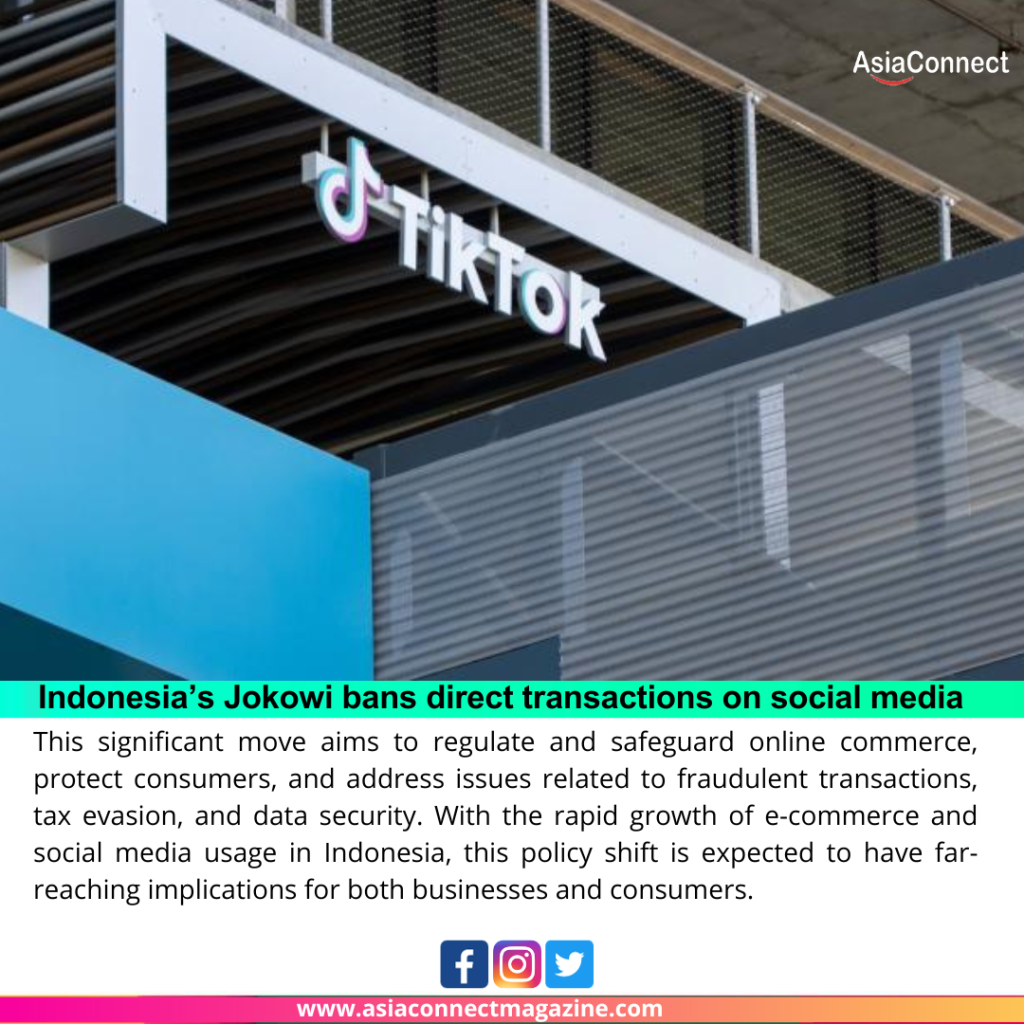
Indonesia’s President Joko Widodo, commonly known as Jokowi, has recently issued a ban on direct transactions on social media platforms. This significant move aims to regulate and safeguard online commerce, protect consumers, and address issues related to fraudulent transactions, tax evasion, and data security. With the rapid growth of e-commerce and social media usage in Indonesia, this policy shift is expected to have far-reaching implications for both businesses and consumers.
The Ban on Direct Transactions:
The ban on direct transactions means that individuals and businesses will no longer be allowed to conduct financial transactions, such as buying and selling products or services, directly through social media platforms like Facebook, Instagram, WhatsApp, and Twitter. Instead, these transactions will need to go through licensed e-commerce platforms or financial institutions.
Reasons Behind the Ban:
Several reasons have been cited for the ban on direct transactions on social media:
- Consumer Protection: The ban aims to protect consumers from fraudulent activities that have become increasingly common on social media platforms. Many users have fallen victim to scams and fake products sold through these platforms.
- Tax Compliance: By channeling transactions through licensed e-commerce platforms, the government can better regulate and monitor financial activities, ensuring that businesses pay the required taxes. Tax evasion has been a significant concern in Indonesia’s informal online economy.
- Data Security: The ban also addresses concerns about data security and privacy. With direct transactions, personal and financial information was often shared with unverified sellers, leading to data breaches and identity theft.
- Economic Development: By encouraging transactions through licensed e-commerce platforms, the government hopes to stimulate the growth of the formal digital economy, which can contribute to economic development and job creation.
Impact on Social Media Platforms:
This ban is expected to have a substantial impact on social media platforms operating in Indonesia. Many businesses, especially small and micro-entrepreneurs, have relied on these platforms for direct sales. Social media companies will need to adapt their business models to comply with the new regulations, which could involve integrating with licensed e-commerce platforms or developing new features for in-app purchases.
Opportunities for Licensed E-Commerce Platforms:
Licensed e-commerce platforms stand to benefit from this ban. They will likely see an influx of new users and transactions as businesses and consumers shift from direct social media transactions to these platforms. To accommodate the increased demand, e-commerce companies may need to scale up their infrastructure, improve payment systems, and enhance user experiences.
Challenges and Concerns:
While the ban aims to address various issues, it also raises some concerns:
- Access and Inclusivity: Some small businesses and individuals may face challenges in transitioning to licensed e-commerce platforms due to barriers such as technological limitations and access issues.
- Regulatory Compliance: Ensuring that all e-commerce platforms adhere to regulatory standards and provide a secure environment for users will be a significant challenge for the government.
- Enforcement: Effectively enforcing the ban and monitoring compliance across the vast and diverse Indonesian archipelago will require significant resources and coordination.
- Impact on Informal Economy: The ban may disrupt the informal online economy, potentially leading to job losses and economic challenges for those who rely on direct social media transactions.
In conclusion, Indonesia’s ban on direct transactions on social media is a significant policy shift aimed at regulating online commerce, enhancing consumer protection, and addressing issues related to tax compliance and data security. While it presents opportunities for licensed e-commerce platforms, it also raises concerns about inclusivity, enforcement, and the impact on the informal online economy. The success of this policy will depend on effective implementation and ongoing efforts to ensure a fair and secure digital marketplace for all Indonesians.




